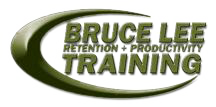What the Best CEOs Know - A Book Review
7 Exceptional Leaders and their lessons for transforming any business. Author: Jeffrey A. Krames. Book Review by Bruce Lee
This fascinating book looks at 7 exceptional company founders and explores the traits common to them that helped make their companies successful. Jeffrey’s list is very similar to other lists such as “The Top 10 Most Admired Companies” in the US and even the Global Most Admired. He points out that very successful leaders are not flawless, that they make mistakes, but then they learn from them. Overall, they are visionary builders of organizations who create great business models. What makes this book so unique is that in addition to exploring what they did and why they did it, he looks at what might have happened in they did it differently. He poses questions like: “What would Michael Dell do in this case?” and then provides an answer based on their operational savvy.
His final list is of visionary builders is made up of: Michael Dell of Dell Computers
, Jack Welch of GE
, Lou Gerstner of IBM
, Andy Grove of Intel
, Bill Gates of Microsoft
, Herb Kelleher of Southwest Airlines
, and Sam Walton of Wal-Mart
.
Their Traits:
1. They start with a view of the marketplace and work back to meet customer needs – called being customer centric
, or from the outside – in
. Del Computers builds each computer to every customer specifications – this is about as customer focused as you can get – and created a $56 billion dollar company. Wal-Mart made a commitment that every American gets the lowest price an anything - no matter where they lived in the US. (Note: as of 2007 Dell has also moved into the high profit supercomputer market.)
Not in the book, but as an FYI for statistical comparison, Wal-Mart was the largest company in the world from 2002 – 2005 with sales of $315 billion. Exxon Mobil moved them out of first spot with a huge 25% sales increase in 2005 to finish at $339 billion. In 2006 they took back the #1 spot with sales of $351 billion - almost a billion a day. The rest on his list placed on the Fortune 500 list for 2006 at:
6 GE $168 Billion
15 IBM $ 92 Billion
34 Dell $57 Billion
49 Microsoft $44 Billion
62 Intel $35 Billion
276 Southwest $9.1 Billion
Other select companies in 2006 were:
H.P #14 at 91 billion, Boeing #28 at 62 billion
Costco #32 at 60 billion, Target #33 at 59.5 billion
Disney #64 at 34 billion, FedEx #68 at 33 billion
2. They all had an Evangelic Leadership Gene
. This is not to be confused with charisma. This trait is described as ardent, crusading enthusiasm for jobs, companies and their career. They were zealous, and did not have magnetic personalities (such as Bill Gates and Lou Gerstner) but could get their people to buy into the future through changes that needed to happen.
3. They understood the critical role of culture
and how it would take years, not months to transform the culture to achieve key corporate goals. The example is with Lou how he had to move IBM from a complacent culture to one that is competitive where the customer was listened to. They instill a feeling of dedication to winning in the market place. For example, Herb at Southwest Airlines wanted a culture of fun by the staff so customers would see it and remember it as a fun experience from check in to landing.
4. They are a First Mover
. They would see emerging products and ideas and got in on it. Examples would be Microsoft for new computers that needed software, and Wal-Mart for the emerging discount store trend.
5. They would implement best ideas
regardless of where they were first heard of. He said the hallmark of learning companies was knowing that they did not have all the answers. Sam Walton would spend up to half of the time he spent in stores actually in competitor’s stores and copying ideas from them. You can absorb good ideas and improve on them. Jack Welch would say that it was employees jobs to borrow ideas and bring them to GE
6. They would advance the leadership body of knowledge
in some fashion, rewriting the playbook. Bill Gates, as a result of helping create the ease of putting information on computer desk tops, so that anyone could move it from person to person, made almost everyone “Knowledge Workers”. Jack Welch said business is simple and there is merit to being informal in how ideas get generated. Business is about building the intellect of the organization – becoming a learning organization.
This article was created by Bruce Lee who is an event speaker, author, productivity coach and MC. His passion is working with individuals and organizations to enhance leadership results and individual productivity through strategic planning sessions and hands on workshops in business acceleration that will improve the bottom line, increase market share and employee and customer loyalty and retention. Each keynote or workshop he presents includes a variety of additional resources and tools after that will further support the training - and measure new skill levels.
